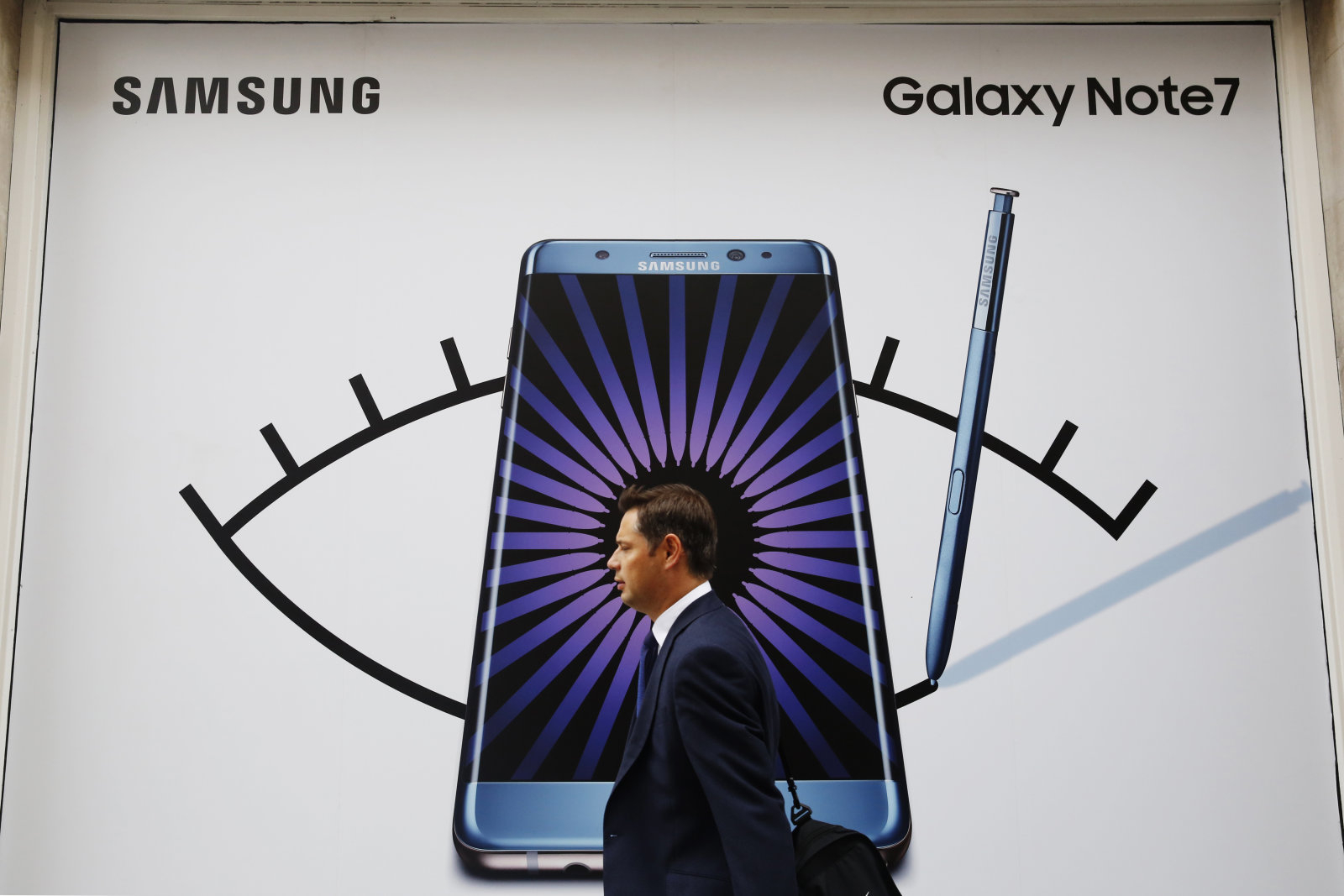
After the furor over flaming phones had mostly subsided, Samsung moved to end the Note 7 fiasco once and for all. Last Sunday, Samsung mobile chief DJ Koh — followed by a cadre of technical experts — laid out exactly what caused the company's incredibly well-received phone to fail so spectacularly. In doing so, he sought to move Samsung past the mess that had consumed it for the last five months.
As we've noted before, Samsung's woes came out of nowhere and escalated quickly. The phone was announced on August 2nd, launched on August 19th and blew up for the first time (so far as we can tell) in Korea on the 24th. About a week later, Samsung halted Note 7 shipments to Korean consumers, begun its investigation in earnest, and issued a global Note 7 recall a few days after that. Meanwhile, reports of phones bursting into flames persisted, prompting the US Consumer Product Safety Commission to work with Samsung on a total US recall.
Gallery: Samsung Galaxy Note 7 Battery Testing | 18 Photos
 18
18



 +14
+14
The situation seemed to settle once Samsung issued replacement units, but they weren't completely safe either. It wasn't long before some of them short circuited and overheated, including one that grounded a Southwest Airlines flight. On October 10th, Samsung officially halted global sales and exchanges of the Note 7, and the race to figure out what really happened kicked into high gear.
We knew the definitive answer was coming, but it was important to hear it from the people in charge. All original Galaxy Note 7s had batteries with cases that made certain electrodes prone to bending and short circuiting. Then, when those started catching fire, another supplier ramped up production of Note 7 batteries in a rush job that led to new manufacturing defects. Poor welding created miniature burrs that could cause short circuits, and some batteries produced by this second manufacturer lacked the insulation tape meant to protect the battery cells entirely.
These flaws effectively killed the Note 7 for good.

Samsung's press conference was apologetic and thorough, with a level of disclosure clearly meant to close the book on a very dark chapter of company history. Over time, though, expect to see the narrative surrounding the company change. Samsung won't just be the company that made exploding phones — it'll be the company that made exploding phones but embarked on the road of redemption and still made shareholders loads of money along the way.
And really, the timing of the announcement couldn't have been better. Koh announced the results of the investigation on a Sunday night (in the US, anyway), just days before Samsung Electronics reported its highest quarterly profits in three years. That continued success came mostly on the back of strong chip and display sales, but Samsung was quick to point out that the Mobile side still gained ground compared to last year "due to solid sales of flagship products such as Galaxy S7/ S7 edge and improved profitability of mid-to-low end models." In other words, Samsung is still just as much a juggernaut as it always was.

Much has been made of how Samsung has to rebuild trust in its brand, but those sales numbers seem to tell a different story. For all the news stories and soundbites about exploding phones, the level of distrust in Samsung isn't as high as some of us (myself included) expected. This sentiment is borne out in part by a survey conducted by Reuters and Ipsos just days after Samsung discontinued Note 7 production in October. Out of 7,514 American respondents, 23 percent said they would not consider buying a Samsung smartphone. Coincidentally, 23 percent of people also said they would not consider buying an iPhone, and 56 percent thought Samsung phones were as safe or safer than other smartphones.
The Note 7 fiasco was embarrassing, but far from world-shaking. Samsung needs to look contrite, but only time (and the release of some new devices) will tell us how much ground the company needs to make up. The humble, apologetic look won't last forever, though -- once the the Galaxy S8 (and possibly the Note 8) are unveiled in the coming months, the message will pivot back toward the company's ceaseless drive for innovation. Sure, journalists, bloggers, critics and forum-goers won't forget what happened here any time soon, but what about everyone else? How many flashy phones and glitzy ads need to be released before the world at large forgets these failures? That's the question we'll eagerly watch Samsung try to answer in the months to come.



 +14
+14